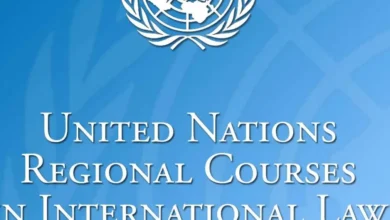Beit Trust Postgraduate Scholarship 2024 Application Updates
The Beit Trust Postgraduate Scholarship is a prestigious opportunity for African students seeking advanced education.
Established by the Beit Trust, this scholarship program aims to support outstanding individuals pursuing postgraduate studies in various fields.
With a rich history of empowering scholars across the African continent, the Beit Trust Scholarship offers financial assistance, mentorship, and a platform for academic excellence.
The scholarship is open to applicants from Zambia, Zimbabwe, and Malawi, fostering regional development by investing in education.
As a beacon of educational support, the Beit Trust Postgraduate Scholarship plays a vital role in shaping future leaders and contributors to African advancement.
Also Read:
Eligibility Criteria for Beit Trust Postgraduate Scholarship
1. Nationality and Residence
The Beit Trust Postgraduate Scholarship is exclusively available to individuals who are citizens of Zambia, Zimbabwe, or Malawi.
Applicants must demonstrate a strong connection to one of these countries and provide evidence of residence.
2. Academic Excellence
Eligible candidates must showcase exceptional academic achievements, typically holding a first-class or upper-second-class undergraduate degree.
A robust academic background is a key criterion for selection, reflecting the Beit Trust’s commitment to supporting individuals with a proven record of excellence in their studies.
3. Field of Study
The scholarship covers a wide range of disciplines, including but not limited to arts, humanities, sciences, social sciences, and engineering.
Applicants pursuing postgraduate studies in any of these fields are encouraged to apply, emphasizing the scholarship’s commitment to fostering diverse educational pursuits.
4. Age Limit
There is an age limit for Beit Trust Postgraduate Scholarship applicants.
Typically, candidates should be under the age of 30 at the time of application.
This criterion ensures that the scholarship supports individuals in the early stages of their postgraduate studies, contributing to the development of young, promising leaders.
5. Commitment to Return
Successful applicants are required to sign an undertaking that they will return to their home country upon completing their studies.
This commitment aligns with the Beit Trust’s goal of nurturing talent for the benefit of the scholars’ home communities and contributing to the overall development of their respective countries.
6. Health and Character
Applicants must undergo a thorough health examination and possess good character references.
This ensures that scholars are not only academically qualified but also physically and ethically prepared for the challenges of postgraduate studies and subsequent professional endeavors.
7. Financial Need
While academic merit is a primary consideration, the Beit Trust Postgraduate Scholarship also takes into account the financial need of applicants.
This criterion aims to provide support to individuals who may face financial barriers in pursuing advanced education, ensuring that deserving candidates have the opportunity to excel academically.
By adhering to these eligibility criteria, the Beit Trust Postgraduate Scholarship strives to identify and support individuals who exhibit both academic excellence and a strong commitment to contributing meaningfully to their home countries.
Application Process and Requirements
1. Application Submission
Prospective candidates for the Beit Trust Postgraduate Scholarship must submit their applications through the official online portal during the designated application period.
The Trust typically announces the opening of applications well in advance, allowing applicants sufficient time to prepare and submit their materials.
2. Required Documentation
The application package includes a comprehensive set of documents, such as academic transcripts, proof of citizenship, and a detailed curriculum vitae (CV).
Applicants are also required to provide a well-crafted personal statement outlining their academic and career aspirations, emphasizing how the scholarship will contribute to their goals.
3. Academic References
Applicants must submit letters of recommendation from academic referees who can attest to their academic abilities and potential for postgraduate studies.
These references play a crucial role in assessing the candidate’s suitability for the scholarship and are instrumental in the selection process.
4. Research Proposal (if applicable)
Depending on the chosen field of study, applicants may need to submit a detailed research proposal outlining their intended research project.
This is particularly relevant for candidates pursuing advanced degrees in research-oriented disciplines, ensuring that their proposed work aligns with the scholarship’s objectives.
5. Interview Process
Shortlisted candidates may be invited for an interview as part of the selection process.
The interview provides an opportunity for the selection panel to assess the candidates’ communication skills, motivations, and alignment with the values of the Beit Trust.
It also serves as a platform for candidates to further express their commitment to their chosen field of study.
6. Timely Submission and Adherence to Guidelines
Strict adherence to deadlines and guidelines is essential throughout the application process.
Late submissions or failure to follow the specified instructions may lead to disqualification.
As such, applicants are encouraged to carefully review all requirements and ensure that their submissions meet the Trust’s expectations.
7. Notification of Results
Following the thorough evaluation of applications and interviews, successful candidates are notified of their selection as Beit Trust Postgraduate Scholars.
The Trust ensures transparency in the process and communicates outcomes to all applicants, whether successful or not.
Navigating the application process for the Beit Trust Postgraduate Scholarship requires careful attention to detail, a strong emphasis on academic accomplishments, and the ability to effectively communicate one’s aspirations and alignment with the scholarship’s mission.
By meeting these requirements, candidates increase their chances of securing this prestigious scholarship.
Also Read:
- Stanford University Scholarships 2024 Application Updates
- Do Middle School Grades Matter for College?
Benefits and Funding provided by Beit Trust
1. Comprehensive Funding
The Beit Trust provides full financial support, covering tuition fees, living expenses, travel costs, and research-related expenses, ensuring that scholars can focus on their studies without financial burden.
2. Duration of Support
Beneficiaries of the Beit Trust Postgraduate Scholarship receive funding for the entire duration of their approved course of study, providing a stable foundation for academic pursuits.
3. Mentorship and Networking
Beyond financial assistance, scholars gain access to a valuable network of mentors and alumni, fostering professional development and guidance throughout their academic journey and beyond.
4. Contribution to Home Country
The scholarship emphasizes the commitment to returning to the home country, empowering scholars to apply their acquired knowledge and skills for the benefit of their communities and contributing to national development.
Frequently Asked Questions (FAQ)
What Scholarship Can I Apply for in Nigeria?
In Nigeria, various scholarships cater to diverse academic pursuits.
Some notable options include the Federal Government Scholarship (FSB) for undergraduate and postgraduate students, the Shell Nigeria Exploration and Production Company (SNEPCo) Scholarship for secondary and tertiary education, and the NNPC/Total National Merit Scholarship for undergraduate students.
Additionally, universities, NGOs, and private organizations often offer specific scholarships.
As opportunities vary, applicants should explore options aligned with their academic goals, field of study, and eligibility criteria to find the most suitable scholarship for their needs.
Which Universities Give Scholarships in Nigeria?
Several universities in Nigeria offer scholarships to support students in their academic pursuits.
Some notable examples include the University of Lagos (UNILAG), Ahmadu Bello University (ABU), Covenant University, and the Obafemi Awolowo University (OAU).
These scholarships may cover tuition, and accommodation, or provide financial assistance based on merit or need.
Prospective students are advised to check with their chosen universities directly, as scholarship programs can vary, and new opportunities may arise.
Additionally, private and government organizations often collaborate with universities to provide scholarship opportunities for students across various disciplines.
Can I Get a Scholarship to the UK from Nigeria?
Yes, Nigerian students can apply for scholarships to study in the UK.
Various UK universities, government bodies, and private organizations offer scholarships for international students, including those from Nigeria.
Common options include the Commonwealth Scholarship, Chevening Scholarship, and university-specific awards.
Eligibility criteria often consider academic merit, leadership potential, and the applicant’s contribution to their community.
Prospective students are encouraged to explore scholarship opportunities offered by their chosen universities and external organizations to help fund their studies in the UK. Application processes and deadlines may vary, so thorough research is essential.
Conclusion
The Beit Trust Postgraduate Scholarship stands as a beacon of educational opportunity for talented individuals from Zambia, Zimbabwe, and Malawi.
With a commitment to academic excellence and a focus on diverse fields of study, this scholarship not only provides crucial financial support but also fosters a community of scholars dedicated to contributing to the development of their home countries.
By embodying the values of mentorship, commitment to return, and a holistic approach to support, the Beit Trust cultivates a cadre of leaders poised to make significant contributions to the advancement of their nations, embodying the spirit of educational empowerment and regional progress.
Also Read:
- How Many Seats Are on a School Bus? (Find Out)
- How Much Is Esthetician School in Texas? (Current Price)






